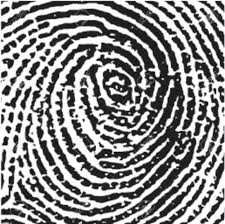


Amelia
ancient history
Roberta Mazza
Interview
An Interview with Roberta Mazza
By Edgar Tijhuis
Can you tell us something about your background and work?
I am an ancient historian specialised in papyrology, a discipline concerned with ancient Egyptian texts written on papyri, the paper of antiquity if you like. I’ve taught in the United States and Great Britain and in 2022 I moved back to Italy as associate professor of papyrology at the University of Bologna’s Department of Cultural Heritage Studies.
I started being interested in the legal and illegal circulation of papyri and other Egyptian antiquities after I was hired at the University of Manchester – where I worked from 2009 to 2022 –, because I was involved with the study and preservation of the university collections.
What do you feel is the most relevant aspect of your course?
I am especially concerned with the overlaps between academia and the ancient manuscripts market, which is a problem that I think most of those who operate in the cultural heritage sector tend to underestimate. There is a long history of papyrologists and classicists embroidered in the market as buyers of manuscripts and other antiquities for themselves, their institutions or re-selling them to collectors. And there is a very long and problematic history of academics publishing papyri and other antiquities of undocumented and even openly illegal provenance. This is a form of laundering, which should be better assessed and addressed not only by academics but society at large, for the vital role scholars play in it.
What do you hope participants will get out of the courses?
I hope that after my sessions they will be looking at manuscripts and other ancient artefacts as archaeological objects, which when stripped from their context loose cultural value. I also hope that those of them who work or will work for galleries and auction houses will bring with them more awareness about the importance of serious research and due diligence on provenance. I hope that master students, curators and other academics will appreciate the importance of ethical publication to help curbing the illegal manuscripts market and the crimes it involves.
What would a typical day be like in your classroom?
My lecturing is very interactive. I tend to present specific cases and to ask students questions on the basis of what I expose and the readings they are eventually due to do in advance. I like also breaking the class in small groups to discuss issues.
While participants are very enthusiastic about your courses, is there anything you learn from them in class?
I learn a lot because of the interactive method I apply. When students get back to me with their ideas about the issues we consider in class, there is always an angle I haven’t considered before or some information I learn from them. It’s the magic of teaching!
In anticipation of your courses, what book, article, or movie would you recommend to participants?
There are not required pre-readings to be able to follow my topic, but to get in the mood I would recommend C. Moss and J. Baden, Bible Nation: The United States of Hobby Lobby, which has to do with a case I have been following, too, and will be at the centre of many of my sessions (the Green collection and the Museum of the Bible of Washington DC, at the centre of scandals, seizures and repatriations). Also, journalist Ariel Sabar’s Veritas on a forgery – a papyrus fragment, which allegedly mentioned the wife of Jesus – involving a Harvard professor. Students will receive some of the articles I wrote about these and other cases, too.
A book that I’ve recently discovered and really enjoyed is Michael Blanding’s The Map Thief, on a famous dealer turned into a thief. It sheds light on university libraries shortages in matters of security. The lack of proper funding for manuscripts and rare books collection care at many institutions worldwide is one of my obsessions.
What makes the yearly ARCA program so unique?
The immersive experience and the incredibly mixed and rich group of students and teachers. We come from very different backgrounds, fields and countries. It is so exciting. And then the beauty of the place and Lynda Albertson, who makes us feel at home. It is wonderful.
Which other course in the program would you love to follow yourself and why?
Certainly Lynda Albertson’s sessions, because I have a lot to learn on databases and technology. But I must say that I’d love to stay there for the whole time because any week has something enticing and new.
Is there anything you can recommend for future participants to do in Amelia or Umbria?
To visit the museum, especially for the Roman bronze statue of Germanicus. I would also recommend some trips in the villages and towns nearby, just to enjoy Umbrian countryside and relax.
What is your experience with the yearly ARCA conference in June?
I gave a paper at the 2014 June conference and came back for others. But the first conference was indeed a very special experience, because it allowed me to meet and receive feedback from some of the best specialists in a field that I joined relatively late. I also like the intimate environment, where you can connect and discuss further in the evenings. It’s just brilliant.
— //—
Edgar Tijhuis is the Academic Director of ARCA.

